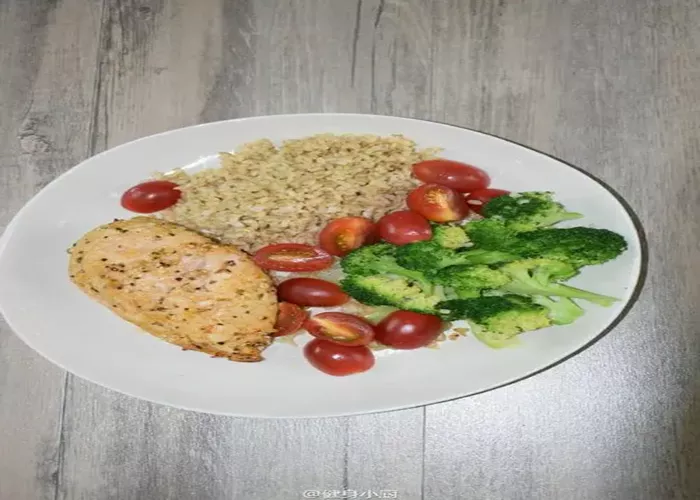When it comes to working out, nutrition plays a crucial role in determining your performance, energy levels, and overall health. What you eat before heading to the gym can significantly impact your workout session, be it in terms of intensity, duration, or the quality of your exercise. But what’s the best thing to eat before a workout? Let’s dive into the details.
Understanding Your Body’s Needs
First, it’s essential to understand that your body’s nutritional needs vary depending on the type, duration, and intensity of your workout. For instance, if you’re planning a light jog for 30 minutes, your pre-workout meal doesn’t need to be as elaborate as if you’re about to engage in a high-intensity, hour-long session of weightlifting.
Your body primarily uses three macronutrients for energy: carbohydrates, proteins, and fats. During exercise, especially high-intensity workouts, carbohydrates are the primary source of quick energy, as they break down into glucose, which fuels your muscles. Proteins are important for muscle repair and growth, while fats serve as a secondary energy source but are slower to digest and utilize.
The Importance of Timing
The timing of your pre-workout meal is also crucial. Ideally, you should aim to eat one to four hours before exercising. The closer you get to your workout time, the smaller and more digestible your meal should be to avoid discomfort like indigestion or cramping.
Carbohydrates: As mentioned, carbohydrates are vital for providing quick energy during workouts. Choose complex carbohydrates like whole grains, fruits, and vegetables, which are lower in fiber but still rich in nutrients. Examples include a banana, a piece of fruit, or a small bowl of oatmeal.
Proteins: Proteins are essential for muscle repair and growth. A moderate amount of protein in your pre-workout meal can help support your muscles during and after exercise. Good sources include lean meats, eggs, yogurt, or even a scoop of protein powder mixed with water or milk.
Fats: While fats are an important part of your overall diet, they should be minimized in pre-workout meals due to their slower digestion rate. A small amount of healthy fats, such as those found in nuts or avocado, is acceptable but not necessary.
Hydration: Don’t forget to stay hydrated. Drinking plenty of water throughout the day and especially before your workout is crucial. Aim to drink at least 2-3 cups of water two to three hours before exercising.
Specific Pre-Workout Meal Examples
Low-Intensity Workouts (e.g., walking, light jogging)
- A piece of fruit (like an apple or orange)
- A handful of almonds or walnuts
- A small glass of low-fat milk or yogurt
Moderate-Intensity Workouts (e.g., running, cycling)
- A small bowl of oatmeal with some sliced bananas and a drizzle of honey
- A grilled chicken sandwich on whole-grain bread with a side of vegetables
- A smoothie made with spinach, berries, a scoop of protein powder, and almond milk
High-Intensity Workouts (e.g., weightlifting, HIIT)
- A banana or two slices of whole-grain toast with natural peanut butter
- A scoop of protein powder mixed with water or a sports drink
- A small serving of sweet potato or quinoa salad with lean protein like chicken or tofu
Avoiding Common Pitfalls
Sugary Foods: While sugary foods can provide a quick energy boost, they can lead to a rapid energy crash, making you feel sluggish during your workout. Avoid candy bars, sodas, or other high-sugar snacks before exercising.
Large Meals: Eating a large, heavy meal close to your workout time can cause discomfort and hinder your performance. Stick to smaller, more digestible meals and snacks.
New Foods: It’s best to stick with foods you’re familiar with before workouts. Trying new foods can lead to unpredictable digestion and potentially disrupt your workout.
Fasting: While some people advocate fasting before workouts, this isn’t always advisable, especially for longer or more intense sessions. Fasting can lead to decreased energy levels and poor performance.
Personal Preferences and Experimentation
Remember, there’s no one-size-fits-all pre-workout meal. What works for one person may not work for another. Experiment with different foods, timings, and portion sizes to find what suits your body and your workout routine best.
Pay attention to how you feel during and after your workouts. If you notice any discomfort, indigestion, or a lack of energy, consider adjusting your pre-workout meal. Listen to your body’s cues and make informed decisions based on your unique needs.
The Role of Hydration
Hydration is another crucial aspect of pre-workout nutrition. Proper hydration ensures that your muscles, joints, and other bodily functions operate optimally. Drink plenty of water throughout the day, and especially before and after your workout.
During workouts, aim to consume water or a sports drink that contains electrolytes to replenish those lost through sweat. Pay attention to your body’s thirst signals and drink accordingly.
Conclusion
What you eat before the gym depends on various factors, including the type, duration, and intensity of your workout, your overall diet, and your personal preferences. By following the general guidelines outlined above and experimenting with different foods, you can find the perfect pre-workout meal that fuels your workouts and supports your fitness goals.
Remember, nutrition is a key component of any fitness journey. By fueling your body with the right foods at the right times, you can maximize your workout potential and achieve your desired results.
Related topic:


